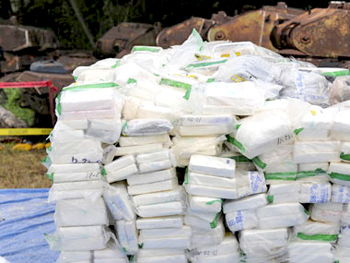New Delhi, Apr 15: CPI-M leader Sitaram Yechury has sought a substantial increase in relief spending of the Central government in the fight against coronavirus, saying that there should be cash transfer of Rs 7,500 to families not paying income tax and distribution of free foodgrains to all needy.
In an article in the forthcoming issue of the party's mouthpiece -- People's Democracy -- Yechury said that India ranks among the countries that are testing the least for the coronavirus and testing should be increased rapidly.
Yechury said the financial stimulus package should be raised from the current 0.8 per cent to at least 5 per cent of GDP and States should be provided liberal funding.
"We must ensure that there are no starvation deaths that occur in our country. It is, therefore, imperative that the government must immediately implement a Rs 7,500 ex gratia cash transfer to all non-income tax-paying families and resort to universal distribution of free foodgrains to all needy people," Yechury said.
He said all MGNREGA workers should be paid wages irrespective of work and employers should be assisted financially to protect workers from job losses and wage cuts and arrangement should be made for the return of migrant workers to their homes.
"Testing is of crucial importance to identify the clusters where the pandemic is spreading in order to isolate and insulate them to contain the community spread. Inadequate testing does not provide us with such information. It is dangerous both for the inability to contain the spread and to identify the critical areas," the article said.
It said that till April 9, India's record of testing was 0.092 per thousand, while in Germany it was 15.96, Italy 14.43, Australia 12.99, Denmark 10.73 and Canada 9.99. "Unless our testing rate increases substantially, our strength to combat the pandemic will not grow," the article said.
Yechury said that the first case in India was reported on January 30 and "no substantive measures were taken despite this for seven long weeks" until the declaration of the lockdown on March 24.
"As far as the lockdown is concerned, many countries in the world moved with greater urgency - China locked down Wuhan on January 23, the whole of Italy was locked down on March 10, USA declared a national emergency on March 13, Spain on March 14, France on March 17 and UK on March 23," he said.
Yechury said the people were looking forward to the Prime Minister's address to the nation on the last day of the three-week countrywide lockdown.
"These three weeks have thrown up many experiences that need to be addressed urgently in order, both, to strengthen our fight against the COVID-19 pandemic and to protect the lives and survival of crores of our fellow citizens. On none of these issues of vital importance did the Prime Minister have anything substantial to say," he said.






Comments
Add new comment